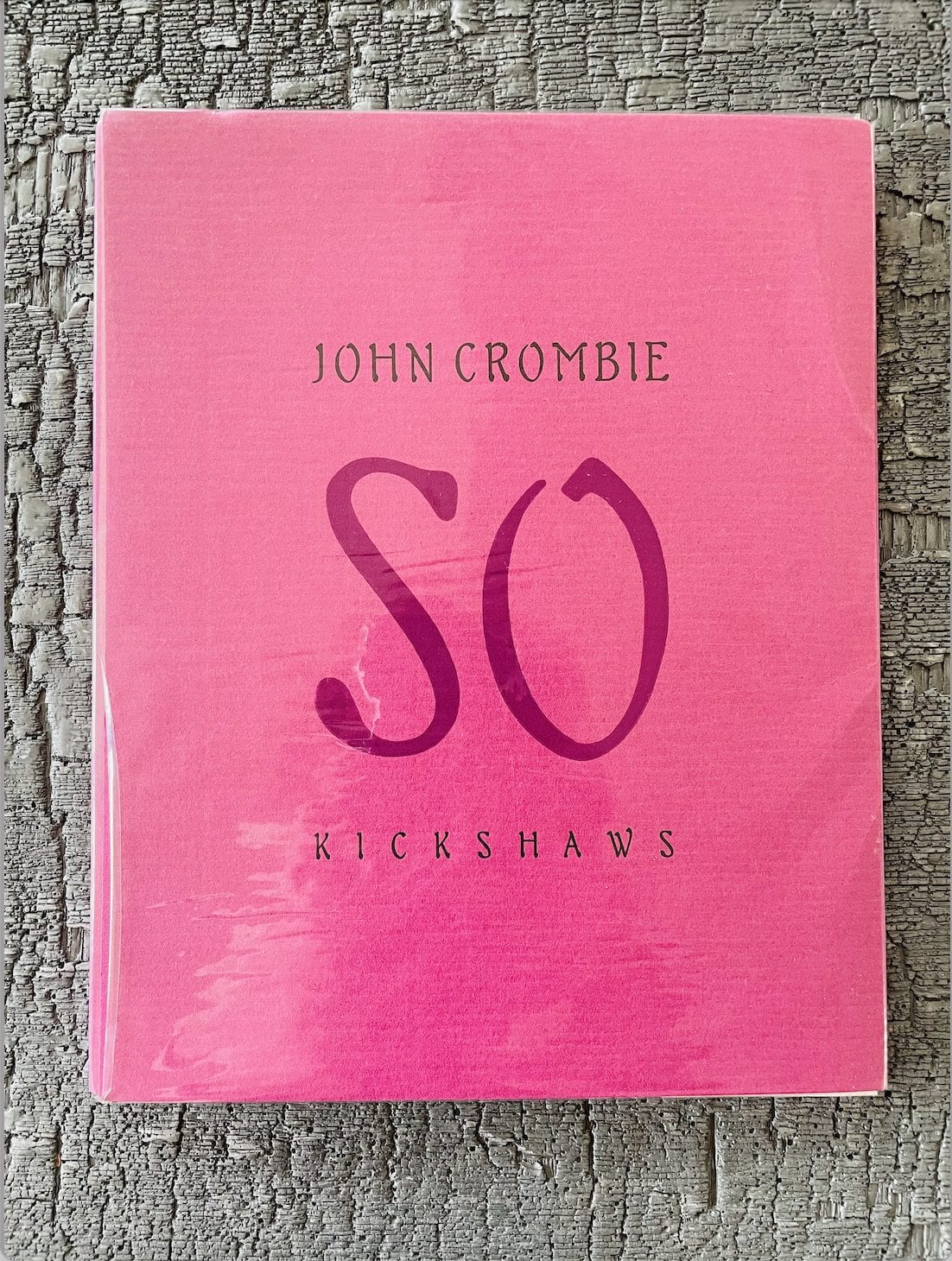Author: John Crombie
Title: So
Published: Kickshaws, Paris, 1988
Description:
Limited edition of 175 copies, 36 pages, 24 cm
“‘SO’ is designed in the form of a maze: a maze composed of ten romances. These run round and round the book, interlinking in a given order to form a complete, closed cycle. Being circular, the maze may be entered at any point … [Includes also] vertical streams of rhyming couplets that trickle down each page and interlock with the horizontal storylines.”– Extract from the instructions by John Crombie
The first thing that catches the reader’s eye in John Crombie’s So is that it is impossible to read like an ordinary book. The story lines spread across pages in such a way that you need to go around the book itself, constantly flipping the pages in order to follow the story. Moreover, different sections of the book seem to be completely independent from each other, so at first glance (and actually at the second one as well), there is no one way to leaf through this book.
The reader at this point may be very confused and unsure of how they should proceed. Should they start reading from the first page? But then which of the two beginnings should they follow? Maybe there is a trick involved and they should start somewhere in the middle? Is it possible to move vertically and step down the verbal ladders, from ‘one-night stands’ to ‘faint squeaks’ and the others? The possibilities seem endless. However, once the beloved reader dares to embark on this unusual, yet so rewarding journey, they will be swept off their feet into a lascivious, yet humorous tale of ten romances. Each one more wonderfully unpredictable than another, they are a true pleasure to decipher.
The way of discovery, once unknown and, therefore, mystifying, becomes liberating and playful. The spectator realises that the story can be weaved again and again in different ways creating a new experience every single time. The concepts of conclusion and climax disappear and are replaced by continuity and succession.
The point of choice is crucial: what would the next passage be? The verdict has to be rendered based solely on very few words accessible at this moment. Have many people made the same choice before me? Does this make sense? Has somebody read it before in the exact way I’m doing it now? The engagement with the book has never before been so conscious and thought through. For So, there exists no passive reader, only active participant, only willing ‘partner in crime’.
I have been on this adventure more times than I can count, but I still can’t say ‘I finished the book’…

